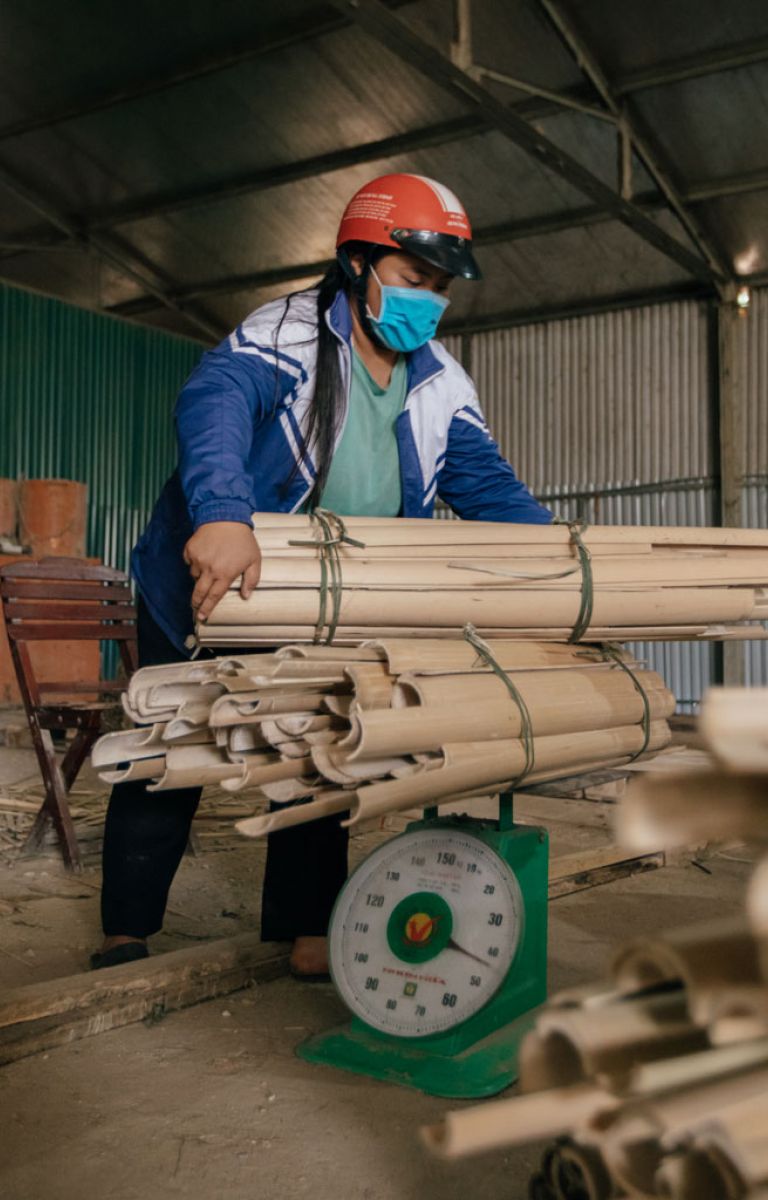

- Regulation and enforcement underpin the sustainability of supply chains.
- The Asia–Pacific region has high rates of deforestation linked to commodity production. It's the biggest commodity consumer—so changes in the region can have significant global impacts.
- Certification can be part of the solution, but monitoring sustainability at the jurisdictional or landscape level might have greater impact.
Deforestation to produce commodities such as palm oil, soy and timber is a major source of greenhouse gas emissions and thus is a driver of climate change. This has led to growing attention to the production and trade of forest-risk commodities.
Because all countries depend on the flow of commodities, a fair and equitable trade environment is needed. This will require a much greater focus on improving transparency and accountability in commodity supply chains.
The experts offered varying views on the best way forward.
The Asia–Pacific region is vitally important in this respect. It is both the largest consumer of forest-risk commodities and a major producer of commodities linked to high rates of deforestation, such as palm oil, rubber and coffee.
The region has the potential to have real impact through increased consumer awareness, along with corporate accountability and improved traceability in supply chains.
Taken together, the national commitments to reduce deforestation and corporate pledges to tackle deforestation risk in commodity supply chains make the situation fundamentally different from previous global efforts to address forest loss.
“There are gaps in supply chain accountability in the region, and the solution is that governments need to enhance legal systems and regulations to improve their governance in the land-use sector. Accountability can only be achieved through strengthening the enabling legal environment.” — Lu De, Executive Director, Asia–Pacific Network for Sustainable Forest Management and Rehabilitation
All countries face the challenge of balancing climate action with economic development. One way that Indonesia is seeking this balance is by piloting district-level monitoring of the sustainability of commodity production under what is called the Terpercaya Initiative. This approach uses a nationally developed framework of 22 indicators that include recognition of customary rights and adherence to the principle of free, prior and informed consent for communities affected by commodity production. This model seeks to ensure strong governance and may be of value to other countries in the region.
Another tool available to countries and to individual consumers is certification of deforestation-free products. Certification has focused on timber products but can be equally applied to high-risk agricultural commodities. However, the cost of certification can be high, and there are limits to the approach’s effectiveness and widespread applicability. The experts argued that if the cost of certification was borne by parties other than producers and consumers, such as governments or third parties, the potential for success might be higher.

“The key area of work for countries in the Asia–Pacific region is to prepare accessible policy infrastructure, landscape management systems and tools for verification and certification that will ensure deforestation-free supply chains.” — Akiko Inoguchi, Forestry Officer, FAO, and Lead for the UN-REDD Sustainable Forest Trade in the Lower Mekong Region Initiative
There is also potential to use a national system for verifying timber legality as a model for verifying that commodity supply chains are free of deforestation. Some countries in the region have implemented or are developing such a system for timber through a voluntary partnership agreement with the European Union, as part of the Forest Law Enforcement, Governance and Trade (FLEGT) Action Plan. One advantage is that this system is compulsory and nationwide, unlike certification, which is voluntary and applies to individual farms of supply chains.
Finally, monitoring sustainability at the scale of jurisdictions, such as provinces or districts, can be an alternative or complementary approach to regulation or certification. Such jurisdictional approaches address the potentially limited extent of certification while allowing for greater precision than national requirements. This could be used to ensure the sustainability of timber and forest-risk commodities by monitoring a range of criteria related to land use.
“Evidence of ensuring supply chain accountability at jurisdictional levels exists within the region [such as Indonesia]. If one country or jurisdiction can do it, then others also can and will find it easier to replicate.” — Promode Kant, Adjunct Professor, Advanced Institute of Wildlife Conservation, and Director, Institute of Green Economy, India
The discussions on jurisdictional sustainability are still developing, but the experts agreed the approach has much potential for aligning well with landscape-based approaches.
